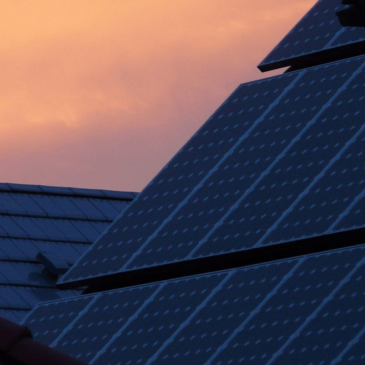Are Solar Panels Really Productivity in Cold Climates?
For homeowners considering solar energy, winter often raises a common question: Will my solar panels still produce enough power during the colder months? The short answer is yes—but understanding how solar panels perform in winter conditions requires a closer look and efficiency can be impacted by several factors.
While winter may bring shorter days and less sunlight, you might be surprised to discover that it also offers some advantages for solar energy production.
Solar Panels Rely on Sunlight, Not Heat
One of the biggest misconceptions about solar panels is that they require heat to generate electricity. In reality, solar panels rely on sunlight—not warmth—to produce energy.
In fact, solar panels will often work even more efficiently in colder temperatures because excessive heat can reduce their efficiency. So, the cooler winter air can actually be beneficial for energy conversion.
Days are Shorter, But Still Provide Adequate Sunlight
It’s true that winter days are shorter, meaning there are fewer daylight hours for solar production. However, solar panels don’t need direct sunlight to function. Even on cloudy or overcast days, they can still generate electricity, albeit at reduced levels.
Winter skies often have less haze and smog compared to summer, and this can allow more sunlight to reach your panels even on cold days.
Snow and Solar Panels: A Mixed Bag
Snow can have both positive and negative impacts on solar productivity. A heavy layer of snow covering your panels will block sunlight, temporarily halting energy production. However, solar panels are designed to withstand and shed snow efficiently.
Their smooth, dark surfaces absorb heat and this will often help melt the snow quickly once the sun comes out. Additionally, as the snow and ice melt, the runoff naturally cleans the panels and this can improve efficiency even more.
Interestingly, snow can also act as a reflector, bouncing additional sunlight onto your panels. This phenomenon, known as the albedo effect, can enhance energy production on sunny winter days when the ground is covered in snow.
Solar Panel Maintenance and Performance During Winter
Keeping your solar panels clean and free from obstructions is essential for maintaining optimal productivity, and winter is no exception. If snow accumulates on your panels and the temperatures are cold enough to prevent the panels from melting the snow, then you can gently remove it using a specialized solar panel cleaning tool or a soft broom.
Avoid using abrasive materials or heavy force, as these can damage the panels.
For most homeowners, the natural shedding process will suffice. Solar panels are often installed at an angle, allowing gravity to help clear snow and debris. In regions with heavy snowfall, investing in professional maintenance services might be a wise option.
Winter Solar Energy and Battery Storage
Winter is also an excellent time to evaluate your energy storage needs. Pairing your solar panels with a battery system can help you store excess energy generated during the day for use at night or during cloudy periods. This ensures a consistent energy supply, even when production dips due to shorter days or inclement weather.
There’s a Seasonal Balance in Solar Energy Production
While winter energy production might be lower than in summer, it’s important to view solar energy as a year-round solution. Solar systems are typically sized based on annual energy needs, meaning that higher summer production offsets winter’s reduced output.
Over the course of a year, most solar panel systems produce enough energy to meet household demands.
Winter may bring its challenges, but solar panels are designed to perform efficiently even in cold and snowy conditions. Solar panels can still produce energy on cloudy days, and sometimes they can even benefit from snow’s reflective properties.
With proper maintenance and a well-designed system, you can enjoy reliable solar energy throughout the year, proving that solar power is a resilient and sustainable choice for any season.
So, if you’ve been considering going solar but hesitated due to winter concerns, rest assured that solar panels can thrive in cold weather and continue contributing to your energy independence—even on the chilliest days.

